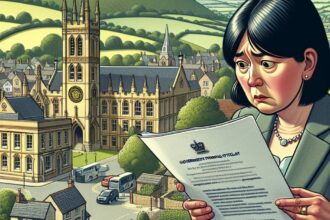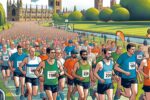A recent report has unveiled an alarming increase in the number of young individuals in Lincolnshire who are not in education, employment, or training (NEET). The latest findings show a small yet noticeable surge in NEET cases from April to June 2025, prompting widespread discussions within the community about the root causes.
Released on the 30th July 2025, the report sheds light on multiple causes behind these figures. Personal circumstances such as pregnancy, caregiving, and health conditions are identified as significant factors. For example, in Lincoln, there is a 17-year-old who is unable to pursue education due education to pregnancy. Furthermore, an unsettling trend is emerging in West Lindsey, where more young carers are unable to access either formal education or employment.
The data mirrors larger societal issues. In Boston, an additional 17-year-old has had to step back due to health issues, reflecting a recurring trend where health-related obstacles impede educational and professional pursuits. This situation is echoed across North Kesteven and further afield, painting a complex image of youth welfare in Lincolnshire.
Comparisons to the earlier reporting period indicate a mounting need for focused support. There is now increased pressure on local councils and community groups to construct strategies that provide viable options for young people into education and work, ensuring nobody is excluded as a result of personal or health-related difficulties.
Residents of Lincolnshire are urged to liaise with local support services and increase awareness of these dilemmas, creating an atmosphere that prioritises the well-being and prospects of the young demographic. As we mull over these statistics, the community’s response could play a pivotal role in moulding a brighter, more inclusive future.
The dialogue around Lincolnshire’s NEETs is intensifying, with the hope that heightened awareness and concrete actions will lay the foundation for positive transformations.
All data was sourced from Lincolnshire County Council’s publicly accessible datasets. To view the original source, visit www.lincolnshire.ckan.io and search for ‘young people’s situation.









